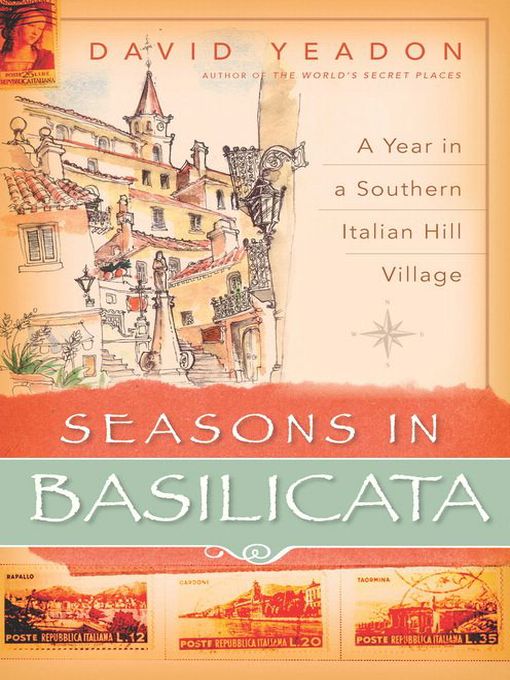Award-winning travel writer and illustrator, David Yeadon embarks with his wife, Anne on an exploration of the "lost word" of Basilicata, in the arch of Italy's boot. What is intended as a brief sojourn turns into an intriguing residency in the ancient hill village of Aliano, where Carlo Levi, author of the world-renowned memoir Christ Stopped at Eboli, was imprisoned by Mussolini for anti-Fascist activities. As the Yeadons become immersed in Aliano's rich tapestry of people, traditions, and festivals, reveling in the rituals and rhythms of the grape and olive harvests, the culinary delights, and other peculiarities of place, they discover that much of the pagan strangeness that Carlo Levi and other notable authors revealed still lurks beneath the beguiling surface of Basilicata.
- Available now
- New eBook additions
- New kids additions
- New teen additions
- Most popular
- Great reads without the wait!
- See all ebooks collections
- Favorite Recorded Books Audio
- Available now
- New audiobook additions
- New kids additions
- New teen additions
- Most popular
- Try something different
- Family Road Trip Audiobooks
- Audiobooks for the Whole Family
- Great Narrators
- Always Available Audiobooks
- Listen While You Run: Audiobooks for Workouts
- Poetry is Meant to Be Spoken
- See all audiobooks collections
- Top Magazines - Now Available!
- Crafting & DIY
- Just added
- Sports
- Health & Fitness
- News & Politics
- Cars & Motorcycles
- Food & Cooking
- Business & Finance
- Revistas digitales
- 中文(简体
- 雑誌
- See all magazines collections



